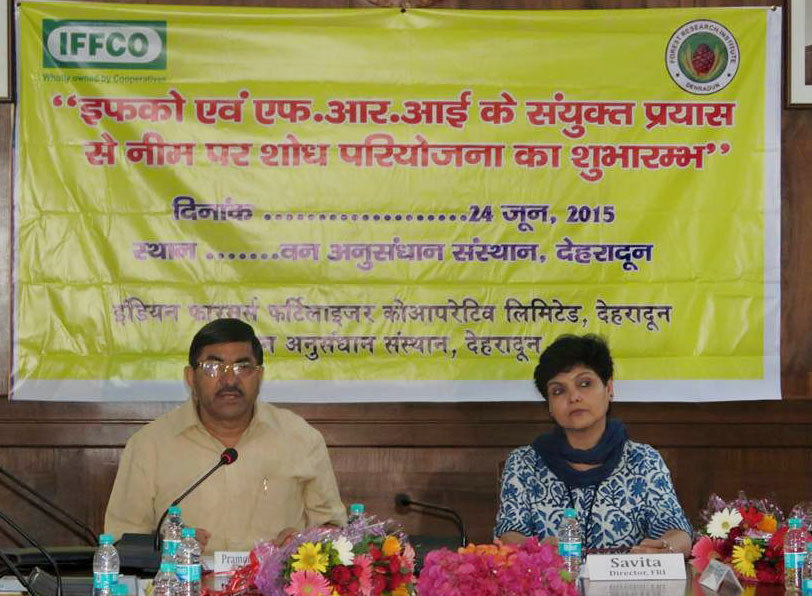A project funded by IFFCO in Dehradun with the Forest Research Institute with an aim to develop a new quick yielding strain of the neem has come up with fascinating results with a possibility of changing the whole dimension of the neem-growth story.
In a period spanning one single year some of the genotypes developed by FRI have attained heights of more than 2.50 meter with 15 dominant branches and greater diameter, said Yogendra Kumar, Marketing Director with IFFCO who is closely monitoring the development.
Such fast growing genotypes with an abundance of economic traits are expected to produce substantial seeds, Kumar adds.
There have been substantial variations in oil content in terms of kernel, which varied from 16.43 to 67.31 %. Most importantly, azadiactin content recorded to be varying significantly, and was recorded up to 15811 (µg/gm of kernel), Kumar emphasized it technically, which for the lay people mean high-oil content.
It may not be out of place here to mention that urea is being compulsorily neem-coated in the country- an initiative

IFFCO has been at the vanguard of this scientific development and had in fact even encouraged its production by announcing that it will buy nimoli from the villagers. “Anybody can sell nimoli to any of the IFFCO centres’, announced its MD Dr U S Awasthi in one of the AGMs.
Simultaneously, it also sought to promote research by signing an MoU with the govt body FRI. Honoring its commitment IFFCO handed over a cheque of Rs 21 lakh to FRI as the first instalment out of total of Rs 93 lakh for the three-year project.
Neem-coated urea maintains soil health and works as insect-pest repellent. Prime Minister Narendra Modi has been insisting on its increased use.















































We may proude such an organisarion like there IFFCO there officer can do any thing possible.